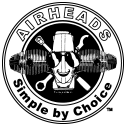What engine do I have?
Bought a 1981 R65 described as “upgraded by prior owner to R80 specs”. No other info available from the seller. I have been collecting clues; hope you guys can help me identify engine so I can order parts. I think it lived with a Harley, it leaks a bit of oil; definitely needs a few gaskets and a seal or two. Haven’t seen an R65 in person, but the cylinders stick out (more than 11 inches from engine case, see picture) a bit further than the R65 pictures I’ve seen. There is an “80” stamped at the base of each cylinder (attached picture). Engine number (attached picture) is not over the dipstick, but on a plate at left/lower/front corner. The number does not match anything I can find on the table in the Clymer manual, pg XII. Carb numbers match those listed for R65, jet sizes are unknown. I’d appreciate any help you can offer.
Smoky,
That, as it turns out, is a difficult question. That bike falls into a transition period for BMW engine/frame numbering. Your photo does not show a full VIN number. If it did, the VIN is searchable and would answer your question. The best help I can offer is refer you to Bob Fleischer's (AKA Snowbum) website, http://bmwmotorcycletech.info/IDnumbrs.htm . Here he tries to explain the identifying numbers you find on your engine, along with where and how to find additional identifying numbers on your bike. Maybe others on this site have some additional insight on your problem.
Snowbum's website is a treasure trove of airhead information. Use it as a primary reference.
Andy
Bought a 1981 R65 described as “upgraded by prior owner to R80 specs”. No other info available from the seller. I have been collecting clues; hope you guys can help me identify engine so I can order parts. I think it lived with a Harley, it leaks a bit of oil; definitely needs a few gaskets and a seal or two.
► The cylinders on these engines are highly interchangeable. I have a pal in CA who slapped a 900cc top end on his otherwise original R65LS. He's mechanically minded, but definitely not a machinist, so his was a bolt-on addition. I'm thinking you may need to remove the heads to know the exact truth about your engine. But that's OK, becasue...
► The most likely source of your engine oil leak is the black "rubber" seals at the base of the 4 push rod tubes. These age harden and need to be replaced every 10 years or so. To replace these seals, the heads and cylinders need to come off. I suggest you remove 1 cyl head, measure the bore & stroke, then you can order the correct gaskets for both sides. You'll need new head gaskets, base gaskets, valve cover gaskets, push rod tube seals, and a host of o-rings. There is no "top end gasket set" that I'm aware of; you have to order individual pieces from BMW. Possibly new piston rings, and you can check the hardness of your intake carb connecting hose.
The only special tools you'll need are the BMW exhaust spanner and a really good torque wrench. Since you're an ABC member, you might be able to borrow the spanner locally. Look it up in the Directory you just received.
This work is very simple and straightforward since you only work on 1 cylinder at a time. I highly suggest you watch several videos on YouTube (especially Chris Harris) so that you know what to expect and avoid any surprises.
https://www.youtube.com/watch?v=A47LiKSYD9o
Hope this helps.
Owning an old Airhead is easy.
Keeping an old Airhead running great is the true test.
Thanks very much for the help, fellas. The info is all out there, I’m trying to wade thru, and it’s really nice of you guys to help a newbie out.
@murphyam53 I went to Snowbum’s article and figure my engine was completed week 28 of 1984, definitely not original equipment to my 1981 R65. Mr Snowbum must be scary smart to wade thru all the material he writes about.
@wobbly Push rod tube leak was one of my first guesses, too, from experience with old VW and Porsche engines. Somebody “caulked” them up with epoxy and they are holding for now. After spraying and wiping several times, I think the oil pressure sensor is one of the leaky culprits. I’ll start investing whether 650 and 800 cc engines used same sensor and get one of those on the way.
@wobbly Push rod tube leak was one of my first guesses, too, from experience with old VW and Porsche engines. Somebody “caulked” them up with epoxy and they are holding for now. After spraying and wiping several times, I think the oil pressure sensor is one of the leaky culprits. I’ll start investing whether 650 and 800 cc engines used same sensor and get one of those on the way.
The electrical system on these bikes was designed by Bosch. That means a lot of the electrical bits on these can be had from your local auto parts store (LAPS), since they were shared with Mercedes, Volvo, VW, Audi, etc automobiles. The Bosch oil pressure switch is a known weak point and leaker, so it's quite possible that your LAPS can actually supply a better made unit.... with a warranty... for about 1/2 the price of BMW.
There are 2 thread patterns: early engines used a fine (possibly tapered) thread of about 8mm dia, which poses a huge danger of stripping out the engine block or cross-threading. Be very careful with these. The later engines used a coarse 10mm thread which is much more robust.
Owning an old Airhead is easy.
Keeping an old Airhead running great is the true test.
- 27 Forums
- 1,952 Topics
- 11.1 K Posts
- 4 Online
- 11.9 K Members





